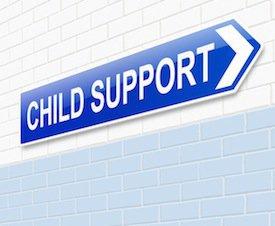Recent Blog Posts
Wage Garnishments and Child Support
Posted on July 19, 2014 in Child Support
 Even after going through the entire divorce in court and getting a divorce decree finalized, the process may not be over. The aftermath of a divorce involves a variety of practical issues, among them collecting child support. While many parents readily keep up to date on their support obligations every month, some require legal enforcement or collection activities before they pay their court-ordered sum. One such method of legal enforcement is to use a wage garnishment, also known in Illinois as a wage deduction order. This is a type of court order that pulls the child support payment directly from the supporting parent’s wages without letting it get into their hands.
Even after going through the entire divorce in court and getting a divorce decree finalized, the process may not be over. The aftermath of a divorce involves a variety of practical issues, among them collecting child support. While many parents readily keep up to date on their support obligations every month, some require legal enforcement or collection activities before they pay their court-ordered sum. One such method of legal enforcement is to use a wage garnishment, also known in Illinois as a wage deduction order. This is a type of court order that pulls the child support payment directly from the supporting parent’s wages without letting it get into their hands.
Continue Reading ››
A New Kind of Infidelity
Posted on July 15, 2014 in Divorce
 People commonly treat their finances as a personal, private matter, and not something to be discussed with others. However, that changes once they enter a marriage. Couples join their lives together during a marriage, and that includes joining their finances. They have to share bank accounts, take on debt together, and make purchases for the marriage as a unit. Not every couple does so successfully though. Instead, some spouses end up being financially unfaithful.
People commonly treat their finances as a personal, private matter, and not something to be discussed with others. However, that changes once they enter a marriage. Couples join their lives together during a marriage, and that includes joining their finances. They have to share bank accounts, take on debt together, and make purchases for the marriage as a unit. Not every couple does so successfully though. Instead, some spouses end up being financially unfaithful.
A recent survey by the National Endowment for Financial Education discovered that one out of every three adults who have been in a relationship with combined finances admits to lying about money. Some people even lied about such basic topics as the amount of debt they owe or the amount of income they earn. Seventy-six percent of people who responded to the survey also said that when dishonesty about money occurred, it had an effect on the relationship. It even ended in divorce in 16 percent of cases.
Continue Reading ››
Frozen Embryos during the Divorce
Posted on July 11, 2014 in Divorce
 The law often cannot keep up with rapid changes in modern technology. This can lead to legal gray areas and open questions in the law. One recent example of this involves advances in reproductive technology. These advances have made the use of in vitro fertilization (IVF) more common. This type of treatment involves extracting sperm and egg cells from the couple and creating embryos from them in a lab. Doctors then implant some of these embryos in the woman, and the rest are often frozen in case the couple chooses to use them at a later date. These frozen embryos can present challenging questions in the context of divorce, a topic that Illinois courts have only recently begun to address, starting with the case of Szafranski v. Dunston. This case is an example of a significant divorce issue, which arises when the wife would like to keep the embryos for future implantation, while the husband would prefer to have them destroyed.
The law often cannot keep up with rapid changes in modern technology. This can lead to legal gray areas and open questions in the law. One recent example of this involves advances in reproductive technology. These advances have made the use of in vitro fertilization (IVF) more common. This type of treatment involves extracting sperm and egg cells from the couple and creating embryos from them in a lab. Doctors then implant some of these embryos in the woman, and the rest are often frozen in case the couple chooses to use them at a later date. These frozen embryos can present challenging questions in the context of divorce, a topic that Illinois courts have only recently begun to address, starting with the case of Szafranski v. Dunston. This case is an example of a significant divorce issue, which arises when the wife would like to keep the embryos for future implantation, while the husband would prefer to have them destroyed.
Continue Reading ››
Tax Status and Divorce
Posted on July 08, 2014 in Divorce
 Filing taxes can be a complicated endeavor at the best of times, and doing it during a divorce only serves to make it more difficult. This is because many parts of a person’s taxes depend on marital status and family relationships. Those sorts of relationships can affect things like tax brackets, deductions, and tax credits.
Filing taxes can be a complicated endeavor at the best of times, and doing it during a divorce only serves to make it more difficult. This is because many parts of a person’s taxes depend on marital status and family relationships. Those sorts of relationships can affect things like tax brackets, deductions, and tax credits.
Two of the largest issues that a divorce presents in regards to taxes are marital status and dependent deductions. Marital status, which includes categories like single, married, or head of household, alters a person’s tax bracket and it can raise or lower their standard deduction. Dependents, which refers to people relying on the tax filer for care, allow the filer to claim them for the purposes of tax deductions.
Continue Reading ››
The First Amendment Right to Infidelity?
Posted on July 02, 2014 in Divorce
 A handful of states, including Illinois, still recognize a pair of torts that allow spouses to sue their unfaithful partner's lovers in certain circumstances. These torts, alienation of affection and criminal conversation, were recently the subject of a judicial opinion in North Carolina, where the trial court judge ruled that they were unconstitutional under the First Amendment's protection of freedom of expression. While such a ruling would have no actual legal effect in Illinois, courts do often look to other jurisdictions for persuasive legal reasoning, and the opinion provides a modern view on some very old laws that still affect people today
A handful of states, including Illinois, still recognize a pair of torts that allow spouses to sue their unfaithful partner's lovers in certain circumstances. These torts, alienation of affection and criminal conversation, were recently the subject of a judicial opinion in North Carolina, where the trial court judge ruled that they were unconstitutional under the First Amendment's protection of freedom of expression. While such a ruling would have no actual legal effect in Illinois, courts do often look to other jurisdictions for persuasive legal reasoning, and the opinion provides a modern view on some very old laws that still affect people today
Continue Reading ››
Tips for Childhood Obesity in Divorce
Posted on June 29, 2014 in Divorce
 Divorce can be a stressful process for everyone involved, including the children of the divorcing spouses. That may explain why a study, recently published in the BMJ (formerly the British Medical Journal), discovered a correlation between childhood obesity and parental marital status.
Divorce can be a stressful process for everyone involved, including the children of the divorcing spouses. That may explain why a study, recently published in the BMJ (formerly the British Medical Journal), discovered a correlation between childhood obesity and parental marital status.
The researchers studied over 3,100 third-graders and found that children whose parents were divorced were 54 percent more likely to be overweight. This means that parents going through a divorce may want to keep a special eye on their children’s weight, and ensure that they take steps to keep their children healthy.
Continue Reading ››
How Spouses Hide Assets: Part 2 - Income Manipulation
Posted on June 27, 2014 in Asset Division
 One of the main focuses of the divorce process is the division of the marital assets between the spouses. This requires the court, through the spouses and their attorneys, to take a thorough accounting of all of the marriage’s property. This can tempt some spouses to hide away assets for themselves rather than revealing them for division. Because the concealment of marital assets can be a problem, people going through a divorce should be aware of the different strategies others can use to hide assets, as well as how to spot them.
One of the main focuses of the divorce process is the division of the marital assets between the spouses. This requires the court, through the spouses and their attorneys, to take a thorough accounting of all of the marriage’s property. This can tempt some spouses to hide away assets for themselves rather than revealing them for division. Because the concealment of marital assets can be a problem, people going through a divorce should be aware of the different strategies others can use to hide assets, as well as how to spot them.
The strategies for concealing assets fall into two major groups: expense manipulation, making it look like more money is coming out than actually is, and income manipulation, making it look like less money is coming in than actually is. The prior post in this series covered some common expense manipulation strategies. This post will focus on the other type of concealment: income manipulation.
Continue Reading ››
How Spouses Conceal Assets: Part 1 - Expense Manipulation
Posted on June 19, 2014 in Divorce
 Many divorces occur amicably with the two parties reaching agreeable compromises on property division. However, some divorces are more acrimonious. One common way that confrontation can manifest is through spouses attempting to conceal marital assets to keep from having to divide them in the divorce. This happens despite the fact that many jurisdictions contain rules requiring the disclosure of assets.
Many divorces occur amicably with the two parties reaching agreeable compromises on property division. However, some divorces are more acrimonious. One common way that confrontation can manifest is through spouses attempting to conceal marital assets to keep from having to divide them in the divorce. This happens despite the fact that many jurisdictions contain rules requiring the disclosure of assets.
People have developed a variety of strategies that they can use to hide their funds, ranging from simplistic and easy to detect to highly subtle or sophisticated. Broadly speaking, they fall into two categories: expense manipulation and income manipulation. Expense manipulation involves techniques that make it appear as though the person is spending more money than what is actually be spent. They can then secret the difference away without having to divide it in the divorce. Income manipulation, which will be covered in part two, involves the opposite: people deferring income until after the divorce to keep it out of the marital estate.
Continue Reading ››
Divorce and Privacy in the Digital Age
Posted on June 17, 2014 in Divorce
 A large part of divorce involves the practical issues related to separating two lives that have been managed jointly. This presents unique problems in the digital age when an increased number of those lives take place online.
A large part of divorce involves the practical issues related to separating two lives that have been managed jointly. This presents unique problems in the digital age when an increased number of those lives take place online.
A recent study by the Pew Research Internet Project found that over one in four couples have a joint email account and 67 percent of people in a committed relationship have shared at least one of their passwords with a significant other. People going through divorce should make sure to stay conscious of these electronic ties that they share with their soon-to-be ex-spouse. Otherwise, they could unwittingly allow their former partner to look into their private affairs.
Continue Reading ››
The Effects of Marriage and Divorce on Your Waistline
Posted on June 12, 2014 in Divorce
 While there is a cultural idea that marriage tends to lead to weight gain and divorce to weight loss, based on whether someone is trying to attract a member of the opposite sex, the reality actually turns out to be somewhat more complicated. A study from the Sociology Department at the Ohio State University looked at BMI reports culled from the National Longitudinal Survey of Youth.
While there is a cultural idea that marriage tends to lead to weight gain and divorce to weight loss, based on whether someone is trying to attract a member of the opposite sex, the reality actually turns out to be somewhat more complicated. A study from the Sociology Department at the Ohio State University looked at BMI reports culled from the National Longitudinal Survey of Youth.
Continue Reading ››







 Even after going through the entire divorce in court and getting a divorce decree finalized, the process may not be over. The aftermath of a divorce involves a variety of practical issues, among them
Even after going through the entire divorce in court and getting a divorce decree finalized, the process may not be over. The aftermath of a divorce involves a variety of practical issues, among them  People commonly treat their finances as a personal, private matter, and not something to be discussed with others. However, that changes once they enter a marriage. Couples join their lives together during a marriage, and that includes joining their finances. They have to share bank accounts, take on debt together, and make purchases for the marriage as a unit. Not every couple does so successfully though. Instead, some spouses end up being
People commonly treat their finances as a personal, private matter, and not something to be discussed with others. However, that changes once they enter a marriage. Couples join their lives together during a marriage, and that includes joining their finances. They have to share bank accounts, take on debt together, and make purchases for the marriage as a unit. Not every couple does so successfully though. Instead, some spouses end up being  The law often cannot keep up with rapid changes in modern technology. This can lead to legal gray areas and open questions in the law. One recent example of this involves advances in reproductive technology. These advances have made the use of in vitro fertilization (IVF) more common. This type of treatment involves extracting sperm and egg cells from the couple and creating embryos from them in a lab. Doctors then implant some of these embryos in the woman, and the rest are often frozen in case the couple chooses to use them at a later date. These frozen embryos can present challenging questions in the context of divorce, a topic that Illinois courts have only recently begun to address, starting with the case of
The law often cannot keep up with rapid changes in modern technology. This can lead to legal gray areas and open questions in the law. One recent example of this involves advances in reproductive technology. These advances have made the use of in vitro fertilization (IVF) more common. This type of treatment involves extracting sperm and egg cells from the couple and creating embryos from them in a lab. Doctors then implant some of these embryos in the woman, and the rest are often frozen in case the couple chooses to use them at a later date. These frozen embryos can present challenging questions in the context of divorce, a topic that Illinois courts have only recently begun to address, starting with the case of  Filing taxes can be a complicated endeavor at the best of times, and doing it
Filing taxes can be a complicated endeavor at the best of times, and doing it  A handful of states, including Illinois, still recognize a pair of torts that allow spouses to sue their
A handful of states, including Illinois, still recognize a pair of torts that allow spouses to sue their  Divorce can be a stressful process for everyone involved, including the children of the divorcing spouses. That may explain why a
Divorce can be a stressful process for everyone involved, including the children of the divorcing spouses. That may explain why a  One of the main focuses of the
One of the main focuses of the  Many divorces occur amicably with the two parties reaching agreeable compromises on property division. However, some divorces are more acrimonious. One common way that confrontation can manifest is through spouses attempting to
Many divorces occur amicably with the two parties reaching agreeable compromises on property division. However, some divorces are more acrimonious. One common way that confrontation can manifest is through spouses attempting to  A large part of
A large part of  While there is a cultural idea that marriage tends to lead to weight gain and
While there is a cultural idea that marriage tends to lead to weight gain and 
